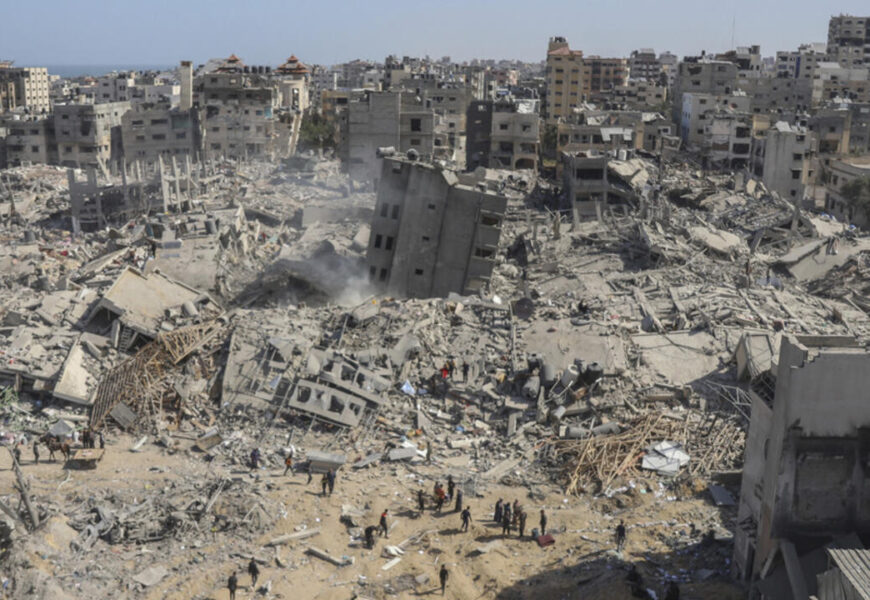The recent deaths of foreign aid workers in Gaza have intensified the scrutiny on Israel’s actions during the conflict with Hamas, raising questions about the Israeli army’s target selection process and the devastating impact on Gaza’s residents.
Following the killing of seven World Central Kitchen (WCK) staff members in a drone strike, Israeli officials have pledged a comprehensive investigation into the incident. The attack, labeled “unconscionable” by UN chief Antonio Guterres, targeted a convoy of aid workers traveling in vehicles clearly marked with the charity’s logo.
In a video statement, IDF chief of general staff Herzi Halevi acknowledged the incident as a “grave mistake,” while Prime Minister Binyamin Netanyahu expressed regret over the unintentional harm caused to innocent civilians. The international community, including US President Joe Biden, condemned the attack and called for a swift investigation to ensure accountability.
This tragic event is not an isolated occurrence, as aid workers in Gaza have faced significant risks amid the ongoing conflict. The UK-based charity Islamic Relief highlighted the dangers faced by humanitarian workers in Gaza, where over 200 aid workers, mostly Palestinians, have lost their lives.
The high civilian casualty toll in Gaza has prompted concerns about the IDF’s targeting procedures. There is a growing perception that Israel’s criteria for selecting targets may not align with international standards, leading to increased scrutiny from its allies.
The conflict escalated following a Hamas-led attack on southern Israel, resulting in a significant loss of civilian lives on both sides. Israel’s stated goal to “eliminate” Hamas has raised concerns about the proportionality of its military actions and compliance with international law.
Reports suggest a shift in the IDF’s approach, with an emphasis on targeting a broader range of locations and individuals associated with Hamas. The use of artificial intelligence (AI) in identifying targets has raised questions about the accuracy and ethical implications of such technology in conflict zones.
While AI systems like “The Gospel” have enabled the IDF to identify thousands of targets, concerns remain about the level of civilian casualties and the ethical considerations involved in target selection. The reliance on technology must be balanced with human judgment to prevent unnecessary harm to non-combatants.
As the conflict in Gaza continues to unfold, it is essential for Israel to uphold its obligations under international law, investigate incidents resulting in civilian casualties, and ensure accountability for any violations. The use of force must be proportionate, with a focus on minimizing harm to civilians and upholding humanitarian principles.










